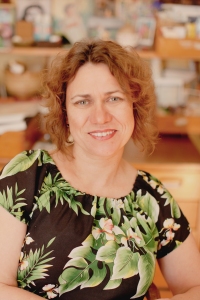This is the first exercise I give to my under-grad Poetry Writing class (CREW253). There’s plenty of imaginative scope, but the constraints place a big emphasis on control. Lack of control is a major problem in many of the poems submitted by course applicants. By ‘lack of control’ I mean poems that lurch tonally, are full of incoherent sentences, random rhymes and poor punctuation. Successful poems that seem out of control are usually, in fact, very carefully managed. We move on to exercises that encourage pushing language around more, but how will you ever learn to juggle if you can’t first throw and catch?
Write a poem called ‘My Childhood in ________’. Choose a place you’ve never lived, but maybe know a little bit about. For example, ‘My Childhood in Laos’, ‘My Childhood on Bikini Atoll’, ‘My Childhood on Mars’, ‘My Childhood in 1848’.
You could talk about your family (you can use your real family or make up a new one). Do you live in the city or country, a house or apartment? What do you like doing? Do you go to school? Do you have a pet? Has something interesting ever happened to you or your family? Do you like where you’re living or would you like to move? These possibilities assume your speaker is still a child, but you could write from the point of view of an adult recalling their childhood.
Try to write in your normal voice, as if you are talking to a friend. Do you talk in rhyme? No.
Your poem must be a syllabic poem! That means each line needs to have the same number of syllables. You can pick the number you want, but 7 or 9 often work well.
You must also incorporate one of the following lines into your poem (not as a first or last line):
‘She carved the meat and then she was crying.’ (Robert Hass)
‘Someone is dying of too much afternoon.’ (Geoff Cochrane)
‘The darkness surrounds us.’ (Robert Creeley)
‘The dog left me there, and I went on myself.’ (Robin Robertson)
‘A is for atlas, but I am not in it.’ (Edwin Morgan)
‘The droppings of last year’s horses.’ (James Wright)
‘The cowbells follow one another.’ (James Wright)
‘She didn’t know what she wanted.’ (Robert Hass)
‘Come here, Sweetie, out of the closet.’ (Sylvia Plath)
‘It is difficult even to choose the adjective.’ (Wallace Stevens)
‘And that has made all the difference.’ (Robert Frost)
‘I wake to sleep, and take my waking slow.’ (Theodore Roethke)
‘Your new life passes in review.’ (John Hartley Williams and Matthew Sweeney)
‘We are kind to snails.’ (Fleur Adcock)
It’s OK to change the line’s tense and gender to fit with your poem.
Here is a syllabic poem by Thom Gunn about a snail. Every line has 7 syllables (except one has 8 – he cheated!).
Considering the Snail
The snail pushes through a green
night, for the grass is heavy
with water and meets over
the bright path he makes, where rain
has darkened the earth’s dark. He
moves in a wood of desire,
pale antlers barely stirring
as he hunts. I cannot tell
what power is at work, drenched there
with purpose, knowing nothing.
What is a snail’s fury? All
I think is that if later
I parted the blades above
the tunnel and saw the thin
trail of broken white across
litter, I would never have
imagined the slow passion
to that deliberate progress.
James Brown was born in Palmerston North, hence the title of next week’s Writers on Mondays event where he’ll discuss his work with Fergus Barrowman. His new book of poetry Warm Auditorium has just been released. You can also catch him reading tomorrow at 12.30 in Unity Books Wellington, with Bill Manhire, Geoff Cochrane, Harry Ricketts, Lynn Davidson and Helen Heath. Full WOM programme details here.


